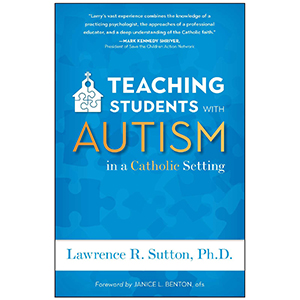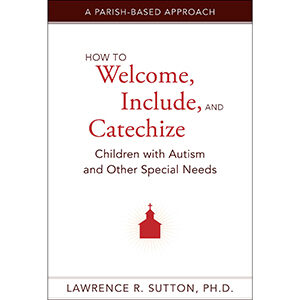
Teaching Students with Autism in a Catholic Setting
This comprehensive guide equips Catholic educators to better understand students with autism and meaningfully respond to and support their educational needs.
2021 Illumination Book Awards, Gold Medal: Education
2021 Catholic Media Association, Pastoral Ministry – Catechetical: Honorable Mention

How to Welcome, Include, and Catechize Children with Autism and Other Special Needs
A Parish-Based Approach
Deacon Larry Sutton shows parish leaders how to adapt their religious education programs to include and welcome children with developmental disabilities into the life of the parish.